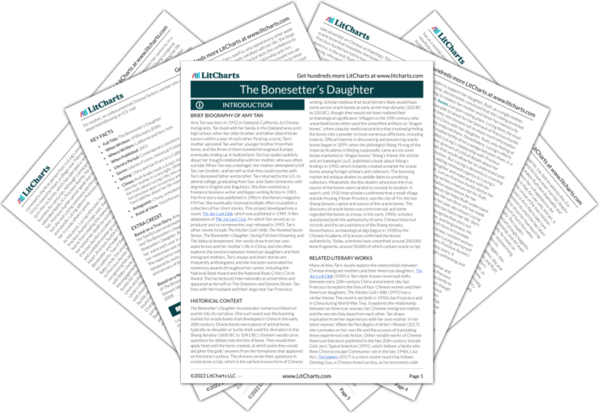That October,
LuLing orders
Ruth to drop off the rent check at the Rogers’ house. The couple is unpacking a color TV—something Ruth has only seen in stores—to watch
The Wizard of Oz.
Lance invites Ruth to watch the movie with them and tells her she can ask LuLing, too. When Ruth tells LuLing about the invitation, LuLing scoffs, insisting the couple is only being polite. Suddenly, an idea strikes Ruth, who pulls down the tea tray. At first, Ruth is too afraid to trick her mother and can only sit motionlessly with the chopstick in her hand. She usually writes in the
sand to appease her mother, trying to scribble the things she thinks LuLing wants to hear. Sometimes, she even manages to write something that turns out to be accurate, such as tips for stock market investments.
